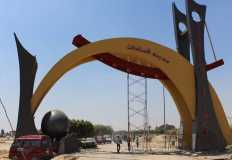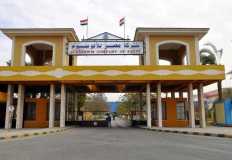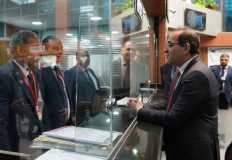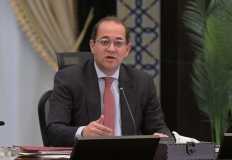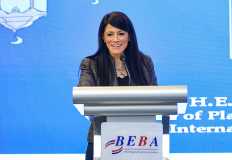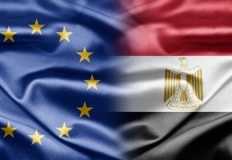
Lieutenant General Osama Rabie, chairman of the Suez Canal authority, witnessed the experimental operation of the fish and shrimp packaging plant of Suez Canal aquaculture company, in the presence of a number of members of the board of directors of the authority and its leaders.
During his tour, Rabie monitored the start of the trial operation of the factory's various sectors, and the progress of work on the fish and shrimp production lines, which have an operational capacity of 7 tons/day.
He directed to quickly coordinate with the food safety authority to
complete the necessary procedures for launching the packaged fish and shrimp in
the markets. He also emphasized the need to make optimal use of the trial
operation period across all sections of the factory.
Lieutenant General Rabie pointed out that during the trial
operation, the factory will sort and package shrimp, in addition to sea bream,
tilapia, and mullet currently harvested from the company's farmed ponds.
The authority chairman emphasized that the operation of the fish and
shrimp packaging plant is an important step toward enhancing the company's
capabilities and potential, opening new markets for its products in the local
market with high quality and affordable prices, enabling the company's products
to be introduced to foreign markets and to provide hard currency.
Rabie then inspected harvested fish farming basins in Basin 21,
which contained dennis, lout, tilapia, bassa, and shrimp. Approximately 280
tons were harvested, including 100 tons of dennis, 30 tons of tilapia, 30 tons
of bassa, and 120 tons of shrimp.
Lieutenant General Rabie was also briefed on the development rates
of fish farming basins in basin 23 in the northern sector of the farm towards
Port Said.This basin was developed and farmed for the first time, in
partnership with Al-Shorouk company, a subsidiary of the “Al-Shawa” group, one
of the national private sector companies, features 400 acres with tilapia,
mullet and tobara fish. The production is being offered through the company’s
refrigerated vehicles in Ismailia and Port Said at reduced prices.
It is worth noting that the Suez Canal aquaculture company’s development strategy focuses on developing the infrastructure of the farmed ponds and increasing its area.
